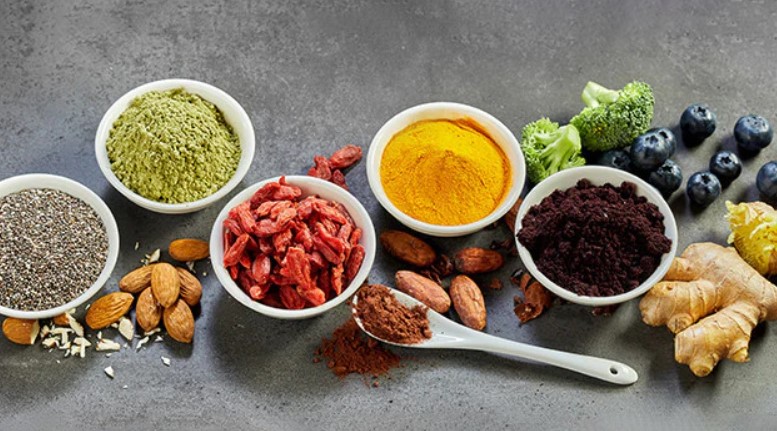Ghee is known for its several advantages. It is known for its capacity to help with everything from hair health to cognitive function. Perhaps that is why our grandmothers used to feed us ghee-laden rotis and laddoos. Even Ayurveda loves ghee for its amazing health benefits! However, if you’ve never truly liked this crowd-pleaser, that’s alright. Ghee is the best, no doubt! It is great for everyday use. However, Ayurveda says contrary to common opinion, it isn’t suitable for everyone. There are some lesser-known downsides of eating ghee, alongside crucial benefits. It won’t be appropriate for certain health conditions! Today, we are going to know why! So, let’s start! But First, What is Ghee? Ghee is a clarified or drawn butter used especially in Indian cuisine. Clarification means separating milk solids and water from fat using heat. It can be made by boiling butter for longer than clarified butter, allowing the milk solids to brown before filtering it. As a result, it has a rich, nuttier flavour than typical clarified butter. There are many misunderstandings regarding it as a fatty meal. However, Ayurveda considers it as a good fat. It has several health advantages if consumed in moderation and with the appropriate meals. People in India use an ancient system of alternative medicine known as Ayurveda. It is prominent in Ayurveda-recommended meals. You can use ghee in combination with herbal therapies as well. It has lately gained appeal as a superior alternative to ordinary butter owing to its reported spiritual and medicinal benefits. It has a high smoke point, which makes it suitable for cooking and serving as a foundation for gravies and stews. Furthermore, ghee is abundant in monounsaturated fats, which are found in studies to offer health advantages such as decreased cholesterol levels. Some Amazing Advantages Of Ghee Ghee is used alongside herbal therapy as part of Ayurveda, an ancient alternative medicine in India. Aside from its purported spiritual and therapeutic powers, it has many fantastic advantages. Has healthy fats It includes beneficial fats that help the body create good cholesterol. Unlike other forms of fat, it does not promote heart disease. Helps digestion Consuming ghee significantly associates with gut health. Our ancestors ate a teaspoon of it before each meal. It lined the intestines, which reduced the incidence of ulcers and cancer. Boosts the immune system The butyric acid in it aids the body’s production of disease-fighting T cells. Contains essential vitamins It is also is a good source of oil-soluble vitamins A and E, necessary for a healthy liver, hormonal balance, and fertility. Anti-inflammatory and anti-cancer This contains butyric acid, which has anti-cancer potential. It has anti-inflammatory properties since it contains antioxidants. Reduces bladder pain Several healthcare specialists advocate giving cow ghee in the morning to alleviate bladder discomfort. One can consume garlic cloves mixed with cow ghee to treat persistent fever. To treat dry mouth and taste buds, use amla powder mixed with raisins and cow ghee in the mouth for a few minutes. Haritaki powder combined with cow ghee is recommended for stomach discomfort since it works as an antispasmodic. Cow ghee combined with sugar might be an effective alternative to Triphala decoction, which frequently produces side effects. Strengthens bones Ghee includes vitamin A, which promotes eye health and protects against night blindness, and Vitamin K, which helps calcium absorption. It helps reduce tooth decay and atherosclerosis. Also, discover wholesome meals for healthy bones. Treats menstrual problems Ghee helps regulate the body’s hormones to treat menstrual difficulties. It became a good alternative for treating menstrual disorders, including PMS and irregular cycles. Helps to reduce weight loss Ghee boosts the body’s metabolism, making it an effective weight loss tool. Consuming it allows the body to burn other fats, which results in weight loss. Post-surgery recovery In ancient India, cow ghee was used as a base to create wicks after surgery. Ayurvedic treatments often use it over surgical sutures to promote rapid healing. To cure piles and fistulas, doctors use a specific concoction called Kshara, which contains cow ghee. It is a remarkable healing capabilities make it an excellent choice following an accident or surgery. Initially, we put cow ghee into the ear lobes of youngsters to relieve discomfort and irritation while simplifying the piercing process. According to Ayurveda, “You are not what you eat. Instead, you are what you digest.” Your health is directly proportionate to your digestive fire (Agni). More than any other meal, ghee activates and improves your digestive fire or Agni. However, there are many scenarios when you should avoid it. Let’s discuss them. When Should You Avoid Ghee? It’s a vital topic because ghee is a healthy dairy product that contains no health risks when used in moderation. However, if you have pre-existing high cholesterol or high blood pressure issues and live a sedentary lifestyle, you should avoid consuming ghee. On the contrary, if your doctor advises you to avoid it in your diet, you should do so. Here are 5 situations when you should avoid having ghee according to Ayurveda. If You Suffer From Indigestion Ghee is heavy to digest. So, while it may act as a laxative for some, it may have the opposite effect for those suffering from indigestion. Also, if you have a fatty liver, including ghee in your diet isn’t a good choice. Because it is a dairy product, persons sensitive to milk proteins might experience a rash, hives, vomiting, or diarrhea. Similarly, people who are lactose intolerant may suffer bloating, gas, or stomach distress after eating ghee. On the other hand, this can reduce allergy symptoms since it is filtered and has no milk protein. If you have a milk protein allergy or lactose intolerance, ask your doctor if ghee should be a part of… Continue reading Ghee -The Ayurvedic Wonder


